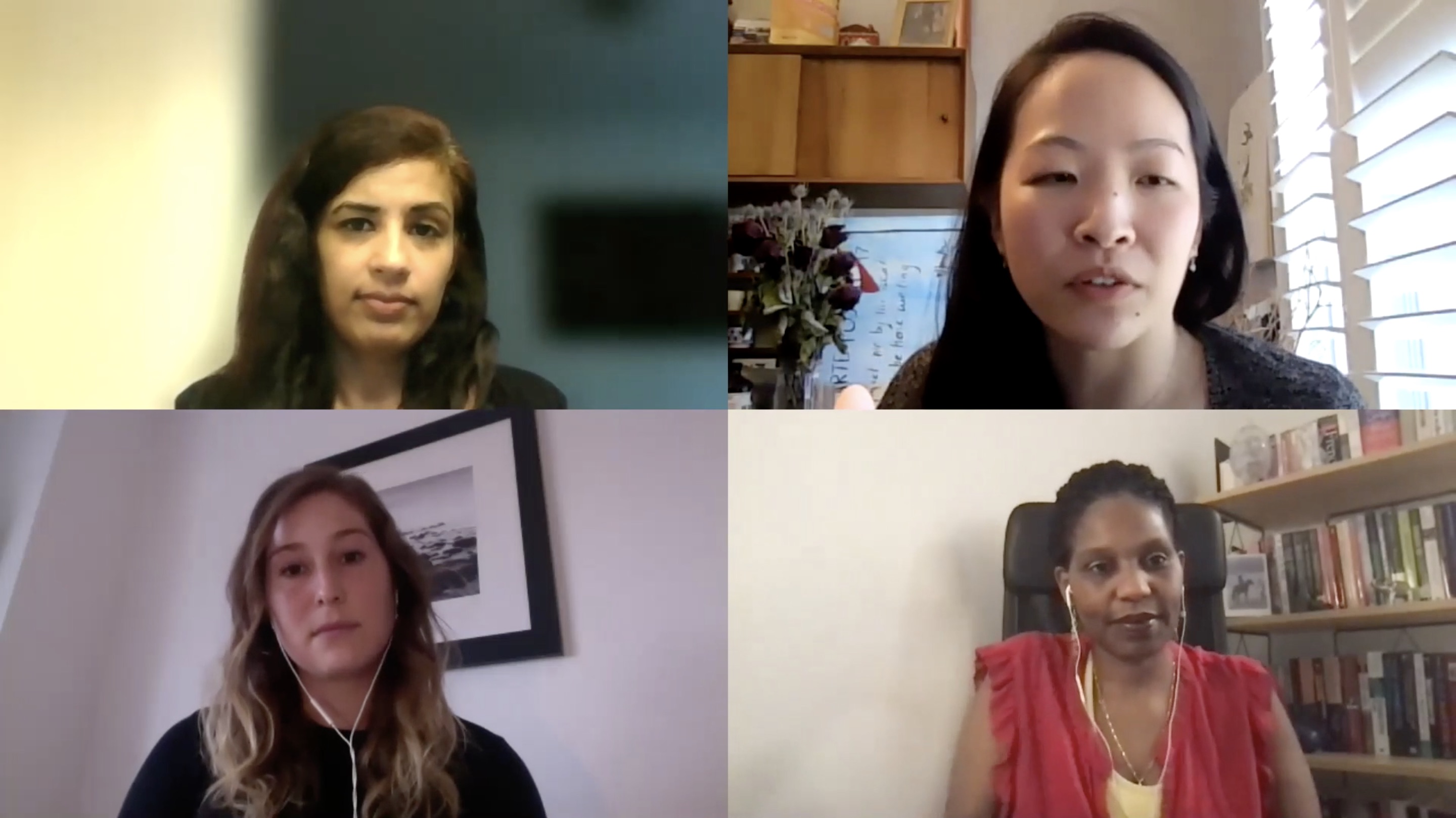By Cate Cox
On April 15th, Sahiyo partnered with the U.S. End FGM/C Network and the Asian Pacific Institute on Gender-Based Violence (APIGBV) for our webinar: Female Genital Mutilation/Cutting (FGM/C): An Under-Recognized Form of Gender-Based Violence (GBV) in the Unites States. This webinar was the second in a series that explored the intersection of FGM/C and GBV; how COVID-19 has impacted the prevalence of FGM/C; and how providers can offer better care to survivors.
FGM/C is a reality for many women and girls across different communities in the United States. Yet, for centuries, FGM/C has remained a hidden practice. It’s often practiced by women on other females; and girls are raised to believe they must remain silent about what they underwent. Silence is an inherent part of this type of gender-based violence that can lead to lifelong physical and emotional health consequences. At the core of providing better prevention, protection, health, and social support services for women and girls are stronger data, enhanced research, and community engagement.
Sahiyo co-founder Mariya Taher and members from the U.S. End FGM/C Network and APIGBV began this event by exploring the background of FGM/C and its global prevalence. The speakers dove into the history of FGM/C in the U.S., including legislative history and that of the practice itself. Then our speakers helped the audience make the broader connection between gender-based violence and female genital cutting. The audience, representing mostly Asian American Pacific Islander (AAPI) domestic violence/sexual assault organizations, identified many similarities including cultures of secrecy and silencing, shame felt by survivors, FGM/C as source of generational trauma, and FGM/C as a form of power and control over women. We also explored the lessons from the Ebola crisis in West Africa that can help us support women and girls during the COVID-19 crisis. Finally, we compiled a list of resources for service providers to further educate themselves on how to both adequately and ethically provide their services to survivors. At the end of the event, our speakers also answered the audience’s questions about their work and experience.

Like many Sahiyo events, we also utilized the Voices to End FGM/C films throughout the presentation to help contextualize what the audience was learning and help them understand the stories behind the statistics. These films center the voices of activists and survivors advocating for an end to the practice. While data is crucial in order for us to grasp the scope of the issue, Sahiyo believes that storytelling can be just as powerful a tool in educating people and championing the abandonment of this practice.
Female Genital Mutilation/Cutting: An Under-Recognized form of Gender-Based Violence in the U.S. as a webinar was a continuation of the important conversation around FGM/C and GBV that also provided the audience with tools they could use in the real work to better support survivors.
Our guests had the chance to explore the intervention and community engagement efforts occurring in this country to support survivors, how COVID-19 has impacted FGM/C and GBV, and how they themselves could help prevent future generations from experiencing FGM/C. It also showcased the amazing work, everyone, at Sahiyo, APIGBV, and the U.S. End FGM/C Network is doing in their capacity to advocate for women’s rights and call for the abandonment of the practice of FGM/C.

If you were unable to attend this event you can find more information here.
Watch the recording of this event.
To learn more about APIGBV and the US End FGM/C Network, please visit their websites below:
Additionally, if you are are service provider you can find some of the resources mentioned at this event below:
- Bridging Refugee Youth and Children’s Services (BRYCS) – Health Practitioners Guide to Providing Culturally Competent Care for Women and Girls Affected by Female Genital Cutting
- Dahlia Project – Female Genital Trauma: Guidelines for Working Therapeutically with Survivors of Female Genital Mutilation
- AHA Foundation – Training Curriculum for Law Enforcement, Educators, and Service Providers

